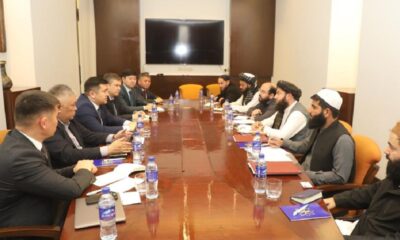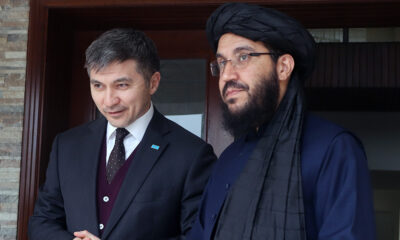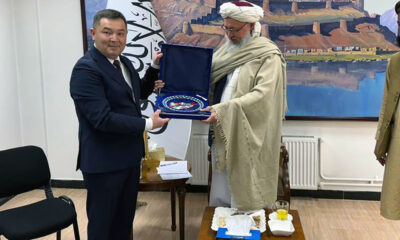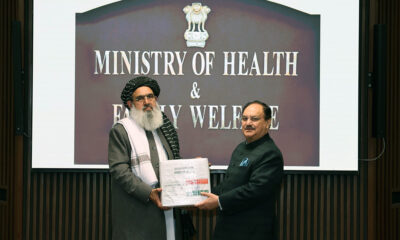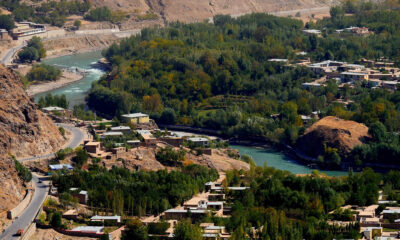Latest News
SIGAR finds single key factor to ANDSF collapse was withdrawal of US troops

The United States’ Special Inspector General for Afghanistan Reconstruction (SIGAR) has found that the single most important factor behind the Afghan National Defense and Security Force’s (ANDSF) collapse in August last year was the US’ decision to withdraw military forces and contractors from Afghanistan.
This decision was taken after the US signed an agreement in February 2020, under former president Donald Trumps administration, with the Islamic Emirate of Afghanistan (IEA) – an agreement adhered to by President Joe Biden.
In their latest report, SIGAR stated that due to the ANDSF’s dependency on US military forces, these events destroyed ANDSF morale.
The ANDSF had long relied on the US military’s presence to protect against large-scale ANDSF losses, and Afghan troops saw the United States as a means of holding their government accountable for paying their salaries.
The US-IEA agreement made it clear that this was no longer the case, resulting in a sense of abandonment within the ANDSF and the Afghan population, SIGAR reported.
The agreement set in motion a series of events crucial to understanding the ANDSF’s collapse, SIGAR stated.
Among those included a drop in the number of US airstrikes; the fact that ANDSF remained reliant on the US military, especially as “the United States designed the ANDSF as a mirror image of US forces.
“This created long-term ANDSF dependencies. The United States created a combined arms military structure that required a high degree of professional military sophistication and leadership,” SIGAR stated adding that the ANDSF had stockpiles of US-provided weapons and supplies, but did not have the logistics capabilities to move these items quickly enough to meet operational demands and had to rely on a thinly-stretched Afghan Air Force to do so.
“As a result, ANDSF units complained that they did not have enough ammunition, food, water, or other military equipment to sustain military engagements against the Taliban (IEA).
“Additionally, the Afghan government failed to develop a national security strategy and plan for nationwide security following the withdrawal of US forces,” SIGAR stated adding that instead, former president Ashraf Ghani frequently changed ANDSF leaders and appointed loyalists, while marginalizing well-trained ANDSF officers aligned with the United States.
The constant turnover weakened military chains of command, trust, and morale in the ANDSF. “Young, welltrained, educated, and professional ANDSF officers who grew up under US tutelage were marginalized and their ties to the U.S. became a liability.”
SIGAR also stated that the United States created more long-term dependencies by providing the ANDSF with advanced military equipment that they could not sustain and that required a US military or contractor presence and that the US lacked any real way to measure the ANDSF’s development.
“The metrics DOD used were inconsistent and unable to measure the development of ANDSF capabilities and capacities over time,” SIGAR stated.
SIGAR also stated that while ANDSF members have either left Afghanistan, or are in hiding, there are those who “have joined extremist groups in Afghanistan.”
Latest News
Afghanistan and Kyrgyzstan boost trade and digital finance ties
Minister Sydykov, in turn, pledged the continuation of Kyrgyzstan’s humanitarian assistance to Afghanistan and highlighted his country’s interest in working together on e-governance initiatives.
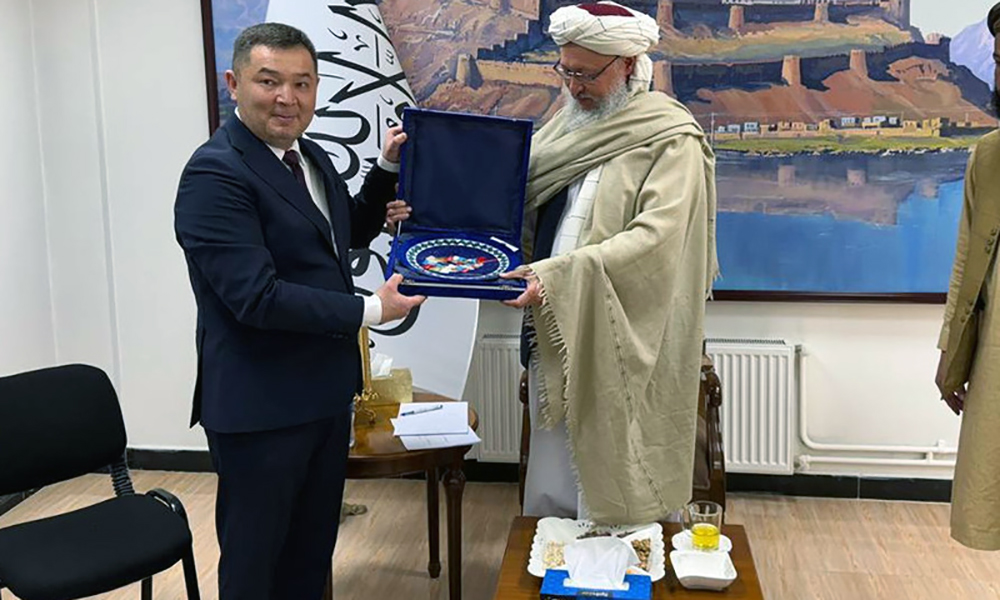
Afghanistan’s Deputy Prime Minister for Administrative Affairs, Abdul Salam Hanafi, has met with a high-level Kyrgyz delegation led by Minister of Economy and Commerce Bakhyt Sydykov to discuss expanding bilateral trade and strengthening cooperation in digital financial services.
During the meeting, Hanafi reaffirmed Afghanistan’s readiness to deepen ties with Kyrgyzstan, stressing the importance of developing electronic administration systems and modern banking channels to facilitate trade and financial transactions between the two countries.
Minister Sydykov, in turn, pledged the continuation of Kyrgyzstan’s humanitarian assistance to Afghanistan and highlighted his country’s interest in working together on e-governance initiatives. He also pointed to potential cooperation in areas such as the printing of securities and the development of electronic payment systems.
Latest News
India reaffirms healthcare support to Afghanistan, hands over medicines and vaccines
Indian officials said the support underscores New Delhi’s commitment to helping improve healthcare services and access to life-saving treatment in Afghanistan.

India has reaffirmed its commitment to continued humanitarian assistance and healthcare cooperation with Afghanistan, with a focus on the long-term supply of essential medicines.
According to the Ministry of Health and Family Welfare of the Government of India, Union Health Minister J.P. Nadda held a productive meeting with Afghanistan’s Minister of Public Health, Noor Jalal Jalali. The discussions focused on strengthening cooperation in the health sector and addressing the medical needs of the Afghan people.
During the meeting, a symbolic handover of cancer medicines and vaccines was carried out, reflecting India’s ongoing support for Afghanistan’s healthcare system. The ministry also announced that a larger consignment of medicines, vaccines, and a 128-slice CT scanner is being dispatched to Afghanistan as part of India’s humanitarian assistance efforts.
Indian officials said the support underscores New Delhi’s commitment to helping improve healthcare services and access to life-saving treatment in Afghanistan.
Latest News
Afghan forces target hideout of suspects linked to cross-border attacks on Chinese nationals
Afghan forces target hideout of suspects linked to cross-border attacks on Chinese nationals
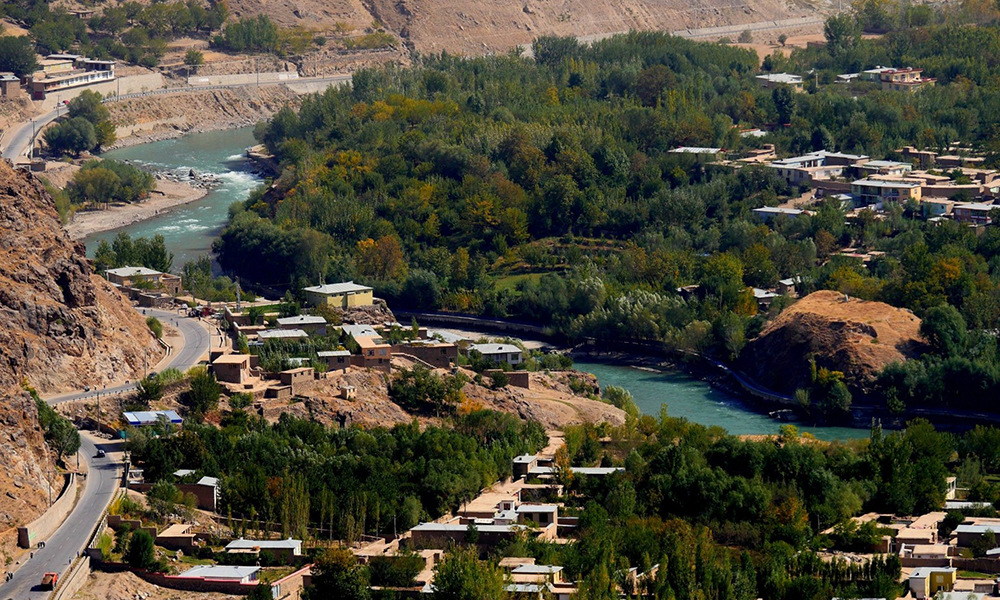
Security sources said that special forces of the Islamic Emirate of Afghanistan (IEA) have targeted a hideout in Badakhshan province linked to suspects involved in attacks against Chinese nationals in neighboring Tajikistan.
According to the sources, the operation was carried out on Tuesday night in Faizabad city, where several individuals suspected of orchestrating cross-border attacks from Badakhshan’s frontier regions were believed to be present. As a result of the operation, one wanted suspect was arrested alive along with weapons and other military equipment.
The sources added that preliminary investigations and initial confessions by the detainee indicate the planning of the attacks was carried out from outside Afghanistan.
This comes as Tajikistan’s Ministry of Foreign Affairs announced on November 27 that three Chinese citizens were killed in an attack in Khatlon province.
-

 Latest News4 days ago
Latest News4 days agoUS delivers second batch of Afghan Black Hawk helicopters to Peru
-

 Latest News3 days ago
Latest News3 days agoGermany speeds up admission of Afghans from Pakistan
-

 Sport3 days ago
Sport3 days agoIPL 2026 Auction set for Abu Dhabi with $28.6 million purse at stake
-
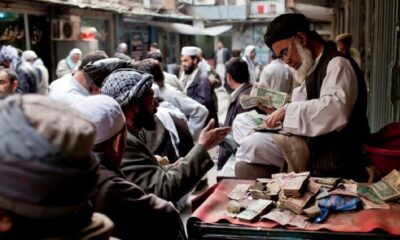
 Business4 days ago
Business4 days agoAfghan economy posts second year of growth despite deep structural challenges
-

 Latest News3 days ago
Latest News3 days agoAfghanistan to establish independent oil and gas authority
-

 Sport4 days ago
Sport4 days agoATN to broadcast ‘The Best FIFA Football Awards 2025’
-

 Latest News3 days ago
Latest News3 days agoUS intelligence chief warns of ‘direct threat’ from suspected terrorists inside the country
-

 International Sports4 days ago
International Sports4 days agoILT20: Jahangir powers Dubai Capitals to nine-run win over Abu Dhabi Knight Riders


